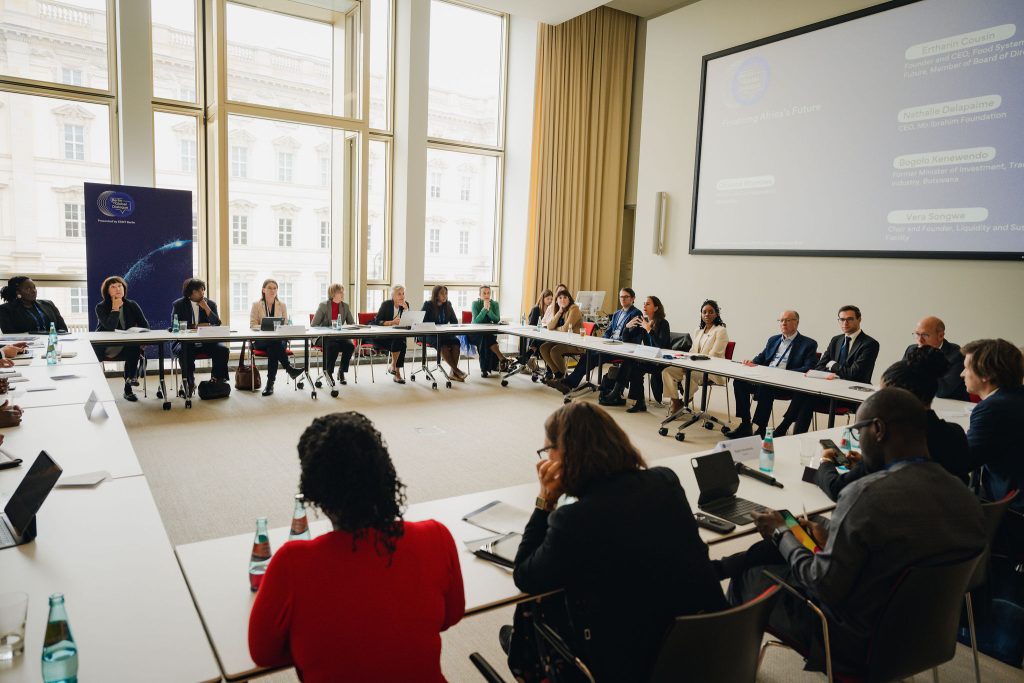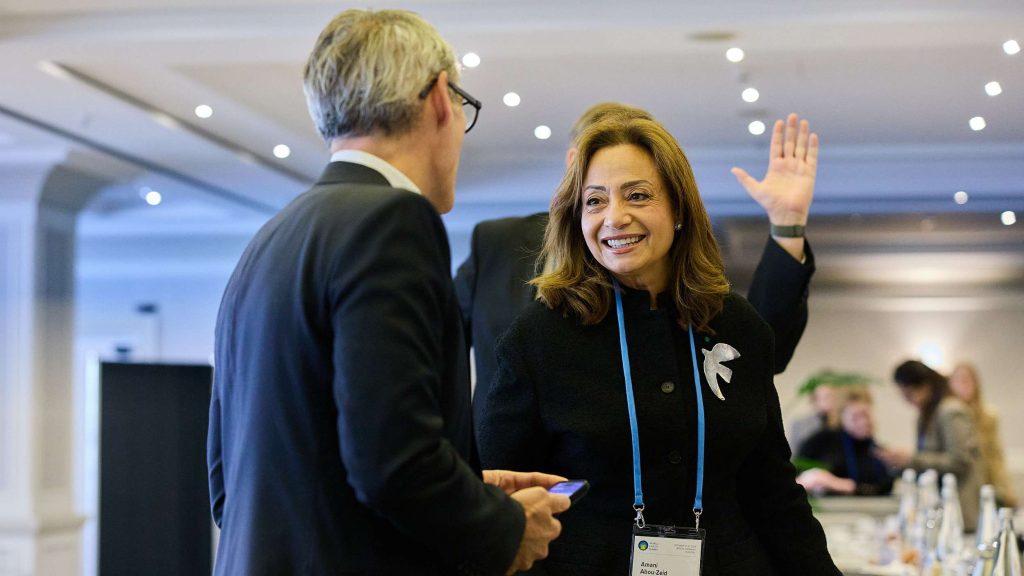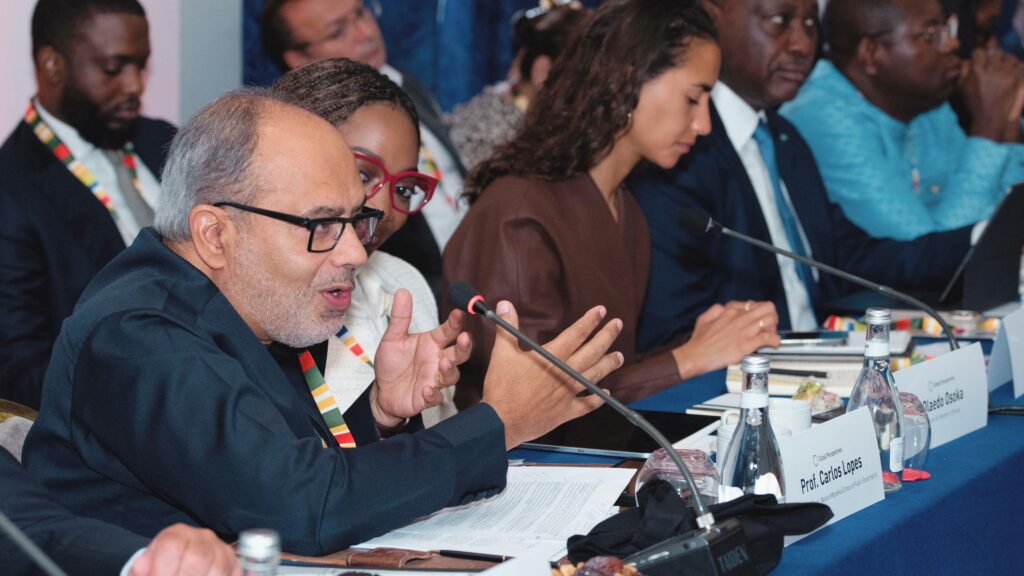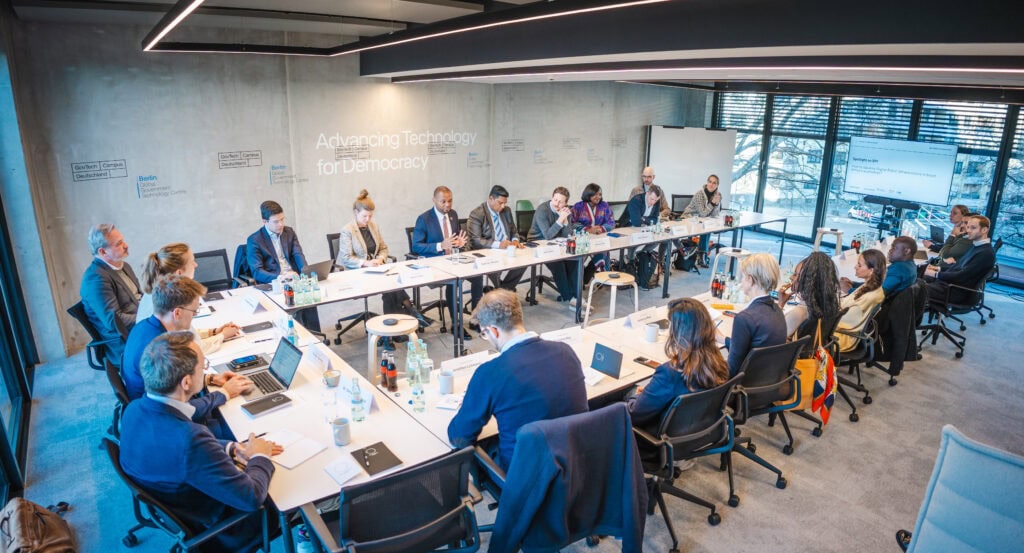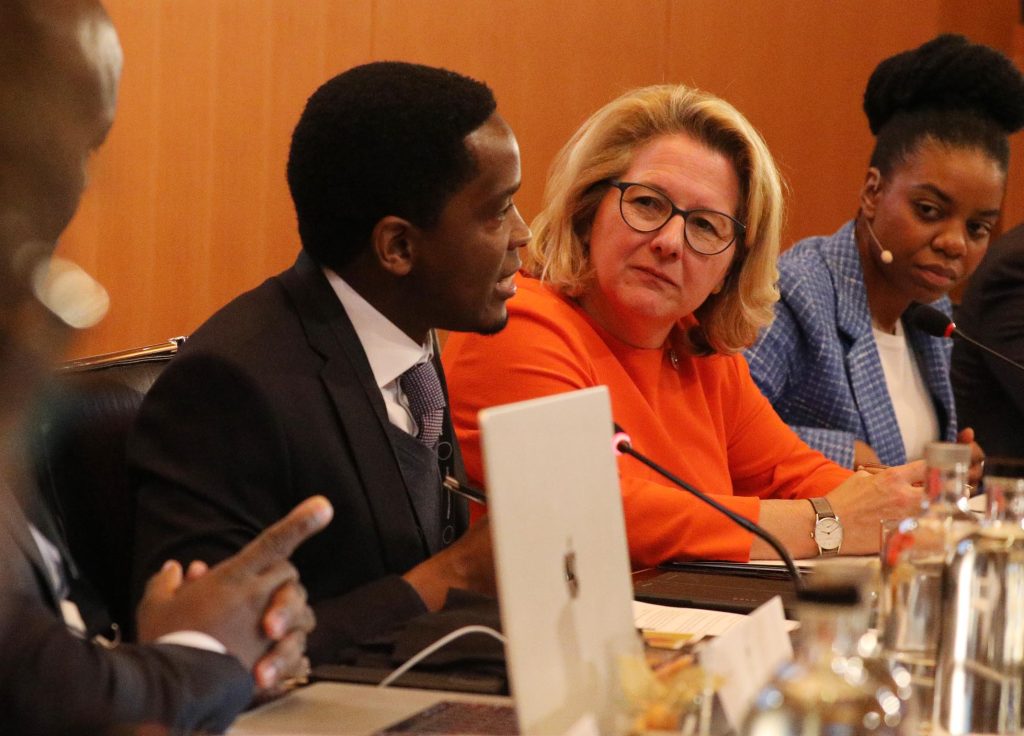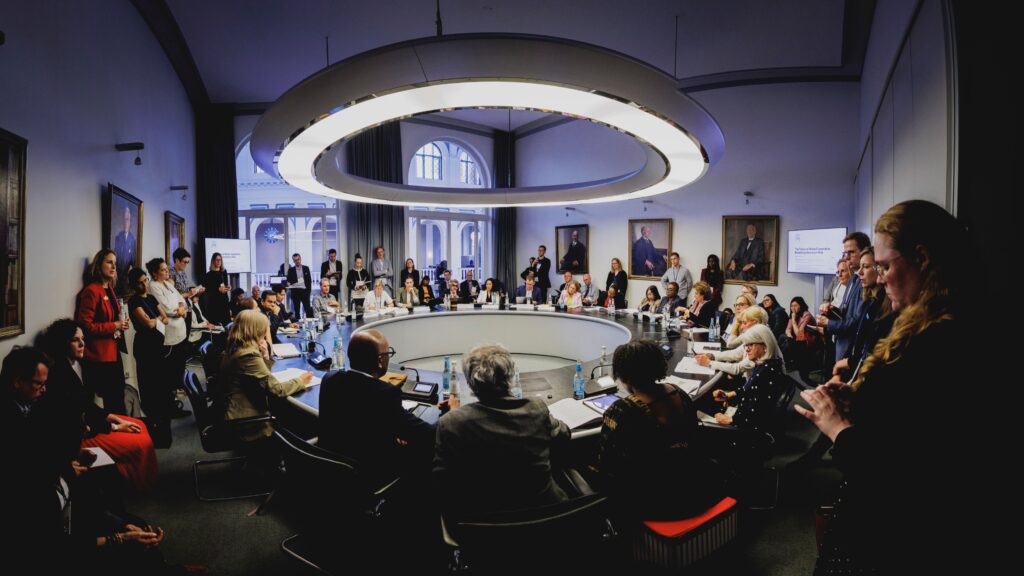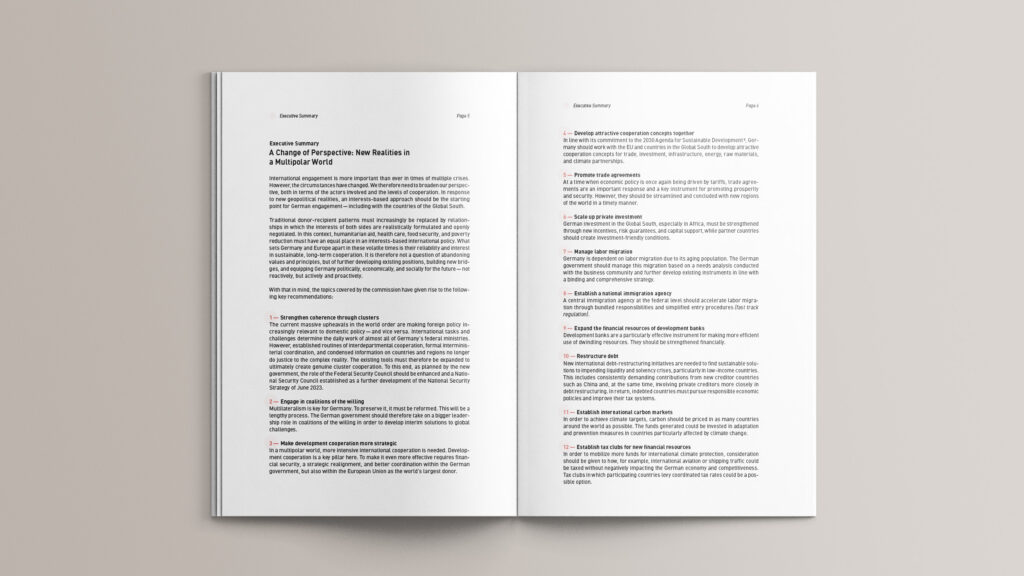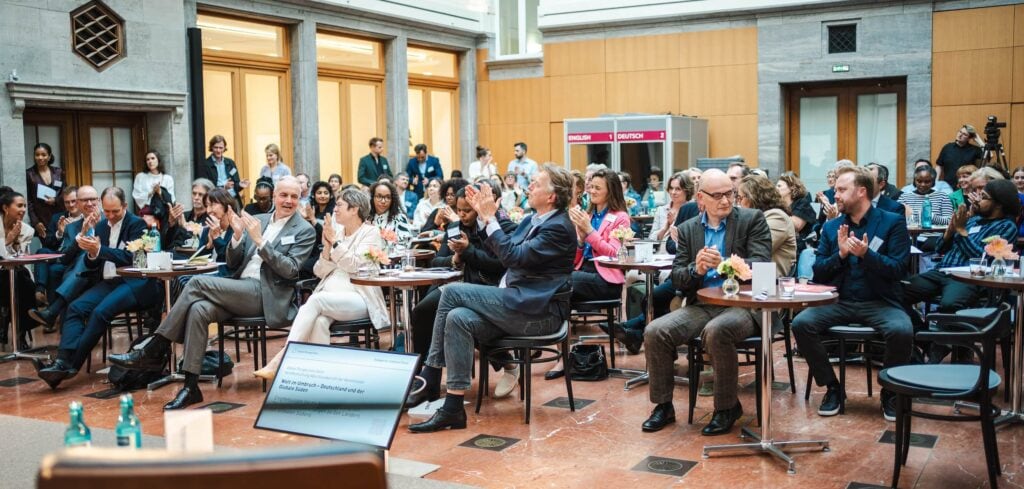Result-oriented, fact-based, continuous
Encounter, Knowledge, Communication
We promote global responsibility and multilateral cooperation by networking key actors and leaders from Africa and Europe at our high-level events. Results and policy recommendations are prepared through studies and strategy papers while we are in continuous exchange with our network. Thus, we ensure that the dialogue has a lasting impact on political discourse. Our focus areas are business and global health as well as pressing political topics. In doing so, we also include the intersecting topics climate, advancement of women and digital matters in our program.
Featured Program Highlight
The Africa Roundtable
The Africa Roundtable is the forum for decision-makers from the political, business and civil society spheres in Europe-Africa cooperation. It deals with pressing issues and challenges of the neighboring continents and develops partnership-based solutions and models for future cooperation. Twice a year, the Africa Roundtable gathers its participants, alternating between the European and the African Continent. Prior publications ensure a fact-based discussion, which is concluded with action recommendations. The eponymous podcast and regular text contributions in pre- and post-processing, complete the program and ensure a continuous dialogue.
Program
Business for Future
Program
Resilient Health Systems
Program
The Africa Roundtable
Program
The Future of International Cooperation
Podcast
The Africa Roundtable
Our Formats
Conference
The high-level format provides a stage for experiences and expertise, whose international appeal has a significant impact on the political dialogue. In close cooperation with our partner organizations, we gather different spheres around one shared topic.
Salon
Continuous dialogue creates awareness for the urgent questions of our time. In salons, renowned experts open the discussion with our curated guests from business, politics and society.
Circle
We believe in proximity building trust. Our most personal format therefore offers the opportunity to deepen the knowledge of our high-ranking guests in a small circle, together with an exchange of experiences, in dialogue.
Politics Briefing
Politics Briefing foster professional dialogue with policymakers. This format is aimed particularly at members of the Bundestag, but also at political actors in government, ministries or political foundations.
Bilateral Meeting
With strong networks, the global challenges of the European and African continents can be tackled together. That is why we network opinion leaders from both continents, bringing together those who belong together.
Digital Salon
Our digital dialog series “Global Perspectives on ...” highlights topics and developments relevant to Europe and Africa and invites decision-makers from both continents to discuss with our CEOs Rhoda Berger and Gregor Darmer.
Program
Amid shifting global dynamics, investing in Africa’s strengths in renewable energy and climate action is more urgent than ever. The action recommendations of the eighth conference.
How can Germany build strong, sustainable relationships with countries in the Global South that benefit both sides? At HSC 2025, we continued the dialogue on the Commission's recommendations.
At the eighth edition of The Africa Roundtable, we discussed how to rethink and strengthen sustainable finance in Africa through strategic partnerships with Europe.
The Commission “A Changing World – Germany and the Global South” presents its recommendations as a basis for addressing key strategic decisions facing Germany today.
How can Germany's international cooperation become more sustainable? After a year of intensive work, the Commission presented its final report recommendations for discussion.
DPI can help bring large populations online, driving economic growth. We highlighted the range of benefits of this new concept at our follow-up to the seventh edition of The Africa Roundtable.
The Commission "A Changing World - Germany and the Global South", chaired by Annegret Kramp-Karrenbauer, presents its first impulses ahead of the German federal elections in 2025.
With data emerging as the key driver of future economic power, Africa's digital transformation is critical and urgent. The action recommendations of the seventh conference.
The seventh edition of the Africa Roundtable focused on the importance of digital infrastructure and data sovereignty for the digital revolution on the African continent.

